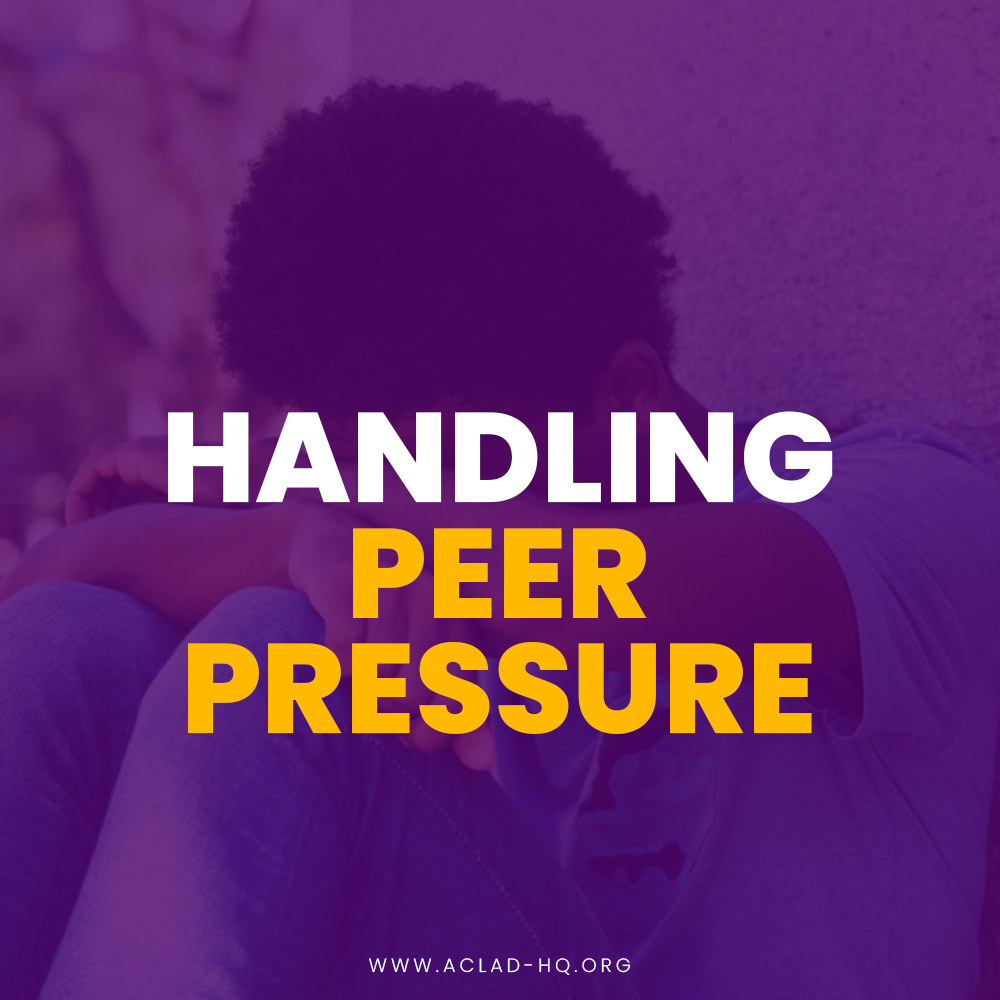Handling peer pressure

The role that age-mates, also called peers, plays in the social and emotional growth of children and adolescents should not be taken for granted. This peer influence usually commences at an early age -even as early as eight years- and peaks through the teenage years. These relationships are not only healthy, but are very important for children to have as they rely on friends as they grow and mature more than their primary caregivers.
Peer pressure and influence can be negative such that children and teenagers can engage in risky behaviour such as theft, experimenting with smoking, drugs and alcohol or becoming truant and skipping school. Negative peer pressure can be said to be that engagement in behaviour that goes against ones moral code or family values. Even with the best and strong background and standing, it is possible for teenagers, seeking acceptance, to find themselves behaving in a manner that goes against their beliefs. Today, many teenagers seek to find acceptance in ‘likes (thumbs up)’ and follows on social media, which may push them to engage in actions that may seem cool today but affect them negatively in the future. This is because teenagers seek more social acceptance than adults as they are not quite capable of independent thinking[1].
Peer pressure doesn’t always have to be negative. Positive peer pressure can help young people make good choices that will protect their lives, their health and integrity and that of those around them. Group dynamics can offer a great deal of positive peer influence if the behaviours within that group are healthy, socially acceptable and age-appropriate. With that in mind, young people should be equipped with knowledge on how to decipher that their actions –both as individuals and as a group as they influence each other- have either long-term or short-term consequences which can be positive or negative. Positive peer pressure plays a role in helping the child and adolescent develop the coping skills and mechanisms needed for adulthood.
Parents can help their children by having conversations about smoking, alcohol and drugs as well as their effects and consequences well before the teen years so that they can refrain from falling into those with peer pressure. In addition, parents should allow teenagers their (guided) freedom, otherwise they may rebel harder (as adolescence may be a confusing time with all the bodily changes taking place and other hormonal changes). When teenagers understand that their parents first priority is to keep them safe and seek what is best for them and not to punish them in their adolescence, they will respond favorably and be more open when they are having issues with negative peer pressure.
Catherine Muteithia
ACLAD Media Consultant
